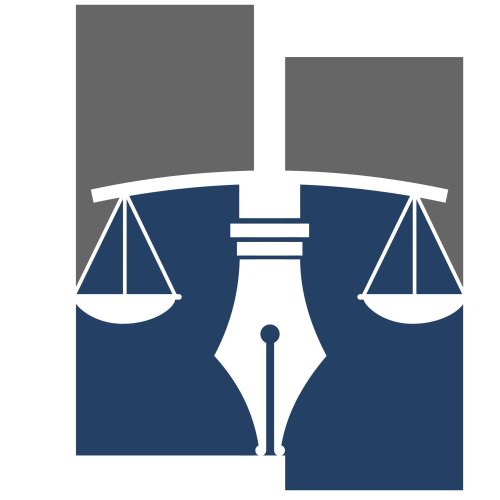Best Climate Change Law Lawyers in Kuwait
Share your needs with us, get contacted by law firms.
Free. Takes 2 min.
Or refine your search by selecting a city:
List of the best lawyers in Kuwait
About Climate Change Law in Kuwait
Climate Change Law in Kuwait covers the set of rules, regulations, and international agreements designed to address the nation's responsibilities in combating climate change and reducing greenhouse gas emissions. While Kuwait has historically relied on oil and gas for economic growth, there is a growing emphasis on environmental protection and compliance with global standards. Climate Change Law in the country aims to govern government actions, private sector activities, environmental impact assessments, and the introduction of sustainable development practices. Kuwait is also a party to several key international environmental protocols and conventions, influencing the local legal framework.
Why You May Need a Lawyer
Legal advice in the field of Climate Change Law can be necessary in various situations. You may need a lawyer if you are a business facing new environmental regulations or compliance requirements. Individuals and organizations working on renewable energy projects, carbon credits, or environmental impact assessments often require legal guidance. Legal help is also valuable if you are affected by proposed governmental policies or seeking to participate in public consultations on environmental matters. Those facing penalties or disputes related to environmental obligations, or wishing to challenge government actions on climate issues, should consult with a specialist in this legal field.
Local Laws Overview
Kuwait has enacted several laws and regulations aimed at environmental protection, many of which are directly or indirectly related to climate change. The Environmental Protection Law (Law No. 42 of 2014, as amended by Law No. 99 of 2015) is the primary legislation governing environmental matters in Kuwait. It regulates air emissions, water pollution, waste management, and sets out penalties for violations. The Kuwait Environment Public Authority (KEPA) is responsible for implementing and enforcing these laws.
Kuwait has also ratified international agreements such as the United Nations Framework Convention on Climate Change and the Kyoto Protocol. These agreements require the country to report greenhouse gas emissions and develop national strategies for climate change mitigation. Local businesses and projects must often undergo environmental impact assessments before proceeding, ensuring their activities align with Kuwait’s climate responsibilities.
Frequently Asked Questions
What is the main environmental law in Kuwait addressing climate change?
The main law is the Environmental Protection Law (Law No. 42 of 2014, amended by Law No. 99 of 2015), which covers various aspects of environmental and climate issues, including pollution control and sustainable development.
What governmental body oversees climate change regulations in Kuwait?
The Kuwait Environment Public Authority (KEPA) is the main regulatory body responsible for implementing and enforcing environmental and climate change policies and laws.
Do businesses need to comply with climate-related regulations in Kuwait?
Yes, businesses must comply with environmental regulations such as emissions limits, waste disposal, and conducting environmental impact assessments for new projects.
What international climate change agreements has Kuwait signed?
Kuwait is a signatory to the United Nations Framework Convention on Climate Change, the Kyoto Protocol, and the Paris Agreement.
Are there penalties for non-compliance with climate regulations?
Yes, penalties can include fines, suspension of activities, or even closure of operations for serious violations of environmental and climate laws.
Is it mandatory to conduct an environmental impact assessment for new projects?
Most industrial or major infrastructure projects in Kuwait require an environmental impact assessment as part of the approval process.
What should I do if I receive a penalty notice from KEPA?
You should seek legal advice promptly to understand your rights, review the validity of the notice, and determine the best approach to address or appeal the penalty.
Can individuals report environmental violations?
Yes, members of the public can report violations to KEPA, which may investigate and take enforcement actions as necessary.
How does climate change law affect oil and gas companies?
Oil and gas companies must comply with stricter emissions standards and reporting requirements and are often subject to regular inspections and assessments related to their environmental impact.
Can I participate in public consultations on climate-related policies?
Yes, many climate and environmental policies undergo public consultation, and individuals or organizations may provide input or raise concerns as part of the process.
Additional Resources
If you are seeking more information or legal guidance regarding Climate Change Law in Kuwait, the following resources may be helpful:
- Kuwait Environment Public Authority (KEPA)
- Ministry of Oil - Environmental Department
- Kuwait Lawyers Association (for finding specialized lawyers)
- United Nations Environment Programme offices in the region
- Non-governmental organizations such as the Kuwait Environment Protection Society
Next Steps
If you believe you need legal assistance in matters relating to Climate Change Law in Kuwait, start by gathering relevant documents, correspondence, and any notices you may have received. Identify your specific concerns or questions and contact a lawyer specializing in environmental or climate law. Consult the Kuwait Lawyers Association to find qualified professionals. During your consultation, discuss your legal options, possible risks, and the ways to ensure compliance or resolve disputes. Staying proactive and informed will help protect your interests and contribute to a sustainable future in Kuwait.
Lawzana helps you find the best lawyers and law firms in Kuwait through a curated and pre-screened list of qualified legal professionals. Our platform offers rankings and detailed profiles of attorneys and law firms, allowing you to compare based on practice areas, including Climate Change Law, experience, and client feedback.
Each profile includes a description of the firm's areas of practice, client reviews, team members and partners, year of establishment, spoken languages, office locations, contact information, social media presence, and any published articles or resources. Most firms on our platform speak English and are experienced in both local and international legal matters.
Get a quote from top-rated law firms in Kuwait — quickly, securely, and without unnecessary hassle.
Disclaimer:
The information provided on this page is for general informational purposes only and does not constitute legal advice. While we strive to ensure the accuracy and relevance of the content, legal information may change over time, and interpretations of the law can vary. You should always consult with a qualified legal professional for advice specific to your situation.
We disclaim all liability for actions taken or not taken based on the content of this page. If you believe any information is incorrect or outdated, please contact us, and we will review and update it where appropriate.
Browse climate change law law firms by city in Kuwait
Refine your search by selecting a city.















